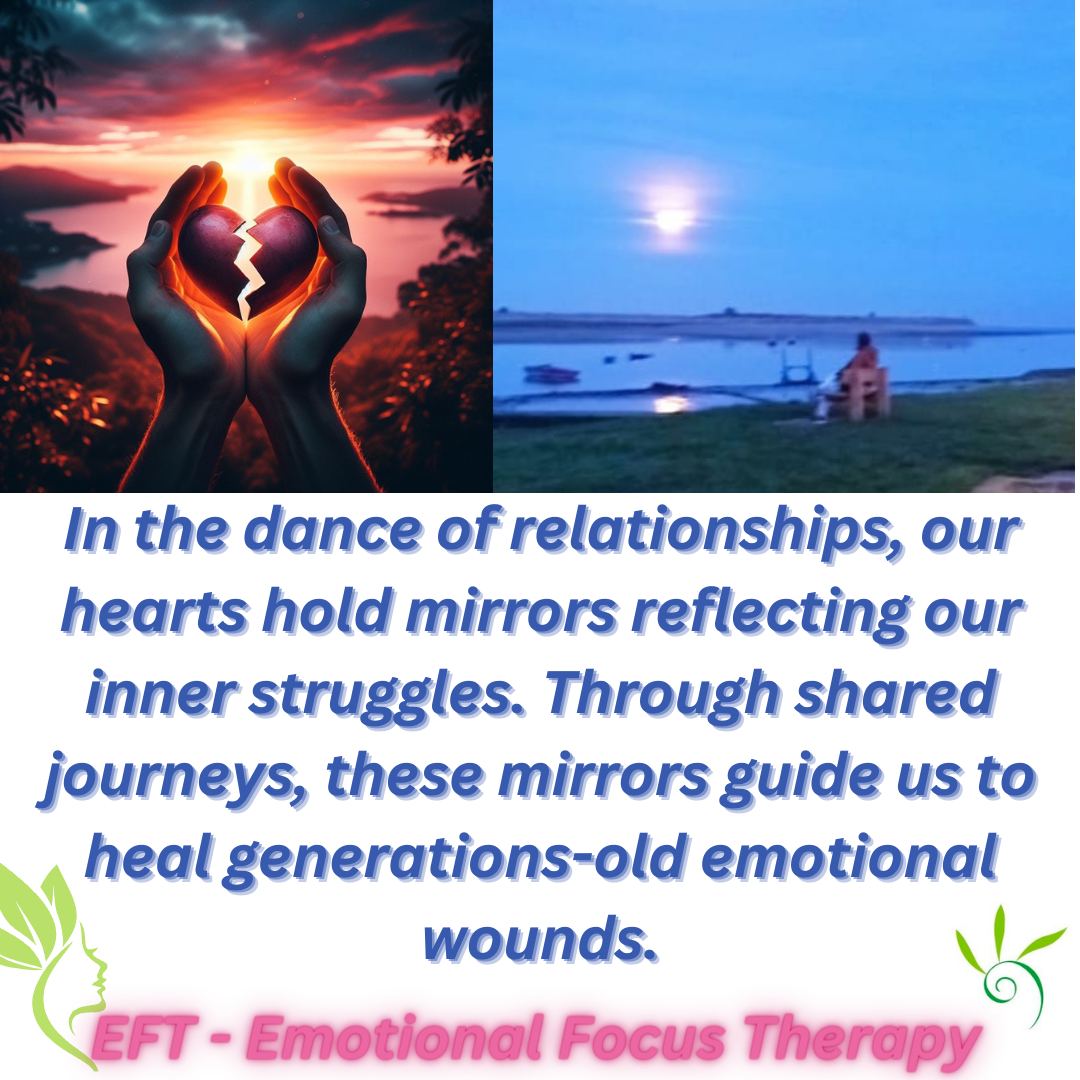Emotionally Focused Therapy (EFT): Cultivating Inner and Couple Bonds
Unlocking the Dance of Emotions
Emotionally Focused Therapy (EFT) is a transformative approach to individual and couples therapy founded by Dr. Sue Johnson. At its core, EFT recognizes that emotions are the language of connection, and by understanding and navigating them; individuals and couples can foster deep, meaningful bonds.
The Founder: Dr. Sue Johnson
Dr. Sue Johnson’s groundbreaking work in Emotionally Focused Therapy (EFT) has been supported by extensive research spanning five decades. She drew upon her expertise in attachment theory and decades of clinical experience to develop a revolutionary approach to therapy. Studies have consistently demonstrated the effectiveness of EFT in improving relationship satisfaction and communication. For example, research conducted by Johnson and her colleagues found that couples that completed EFT reported significant reductions in relationship distress and increased levels of relationship satisfaction. Furthermore, follow-up studies have shown that these improvements are often maintained over time, indicating the long-lasting impact of EFT on couples’ well being. The studies have shown that EFT is highly effective, with up to 70-75% positive outcomes.
The Tango of Therapy: Dancing with Emotions
EFT operates on the premise that emotions are like dance partners, moving in harmony or discord depending on the connection between individuals. In therapy, clients learn to identify and express their emotions, much like dancers interpreting the music of their relationship. By learning the steps of this emotional tango, individuals and couples can deepen their understanding of themselves and each other. For instance, studies have found that couples that undergo EFT demonstrate improved emotional regulation skills and a greater ability to empathize with their partner’s feelings. This emotional attunement lays the foundation for healthier communication patterns and more satisfying relationships.
Emotion Connection: The Heartbeat of EFT
Central of EFT is the idea that emotion connection is essential for both individual and couple well being. In therapy, clients explore the underlying emotions driving their thoughts and behaviors, uncovering patterns that may be hindering their ability to connect authentically. Through this process, individuals learn to cultivate a deeper sense of self-awareness and self-compassion, while couples develop a stronger, more secure bond. The concept of emotional connection lies at the core of EFT, and research has underscored its importance in fostering resilient and fulfilling relationships. Studies have shown that couples who engage in EFT experience not only improvements in relationship satisfaction but also greater levels of emotional intimacy and trust. For example, research has found that EFT helps couples repair attachment injuries and deepen their emotional bond, leading to increased feelings of security and closeness.
The Power of Inner and Couple Bonds
EFT is not just about resolving conflict; it’s about nurturing the bonds that sustain us. By fostering a secure inner bond, individuals can approach relationships from a place of strength and authenticity. Similarly, by strengthening the couple bond, partners can create a safe and supportive environment where they can grow and thrive together. EFT recognizes that individual well-being is closely intertwined with the quality of our relationships. Research has shown that EFT is equally effective for individuals seeking therapy on their own as it is for couples. For example, studies have found that individuals who undergo EFT report improvements in their overall psychological functioning, including reductions in symptoms of depression and anxiety.
Emotionally Focused Therapy offers a transformative journey of self-discovery and relational healing. Whether you’re seeking to deepen your connection with yourself or your partner, EFT provides a roadmap for navigating the complexities of emotions and relationships with compassion and courage. Take the first step towards a more fulfilling life and relationship-join the dance of emotions with EFT.

Get in touch with me about how to dance with your own emotions or dance with your partner in this MUSIC together.
Key components and principles of Emotionally Focused Therapy:
1. Attachment Theory: EFT is deeply rooted in attachment theory, which suggests that humans are biologically predisposed to seek proximity to caregivers for emotional safety and security. In adult romantic relationships, partners also seek emotional closeness and responsiveness from each other.
2. Emotion Regulation: EFT emphasizes the importance of identifying and regulating emotions within the therapeutic process. Clients learn to recognize and express their emotions effectively, which fosters empathy and understanding between partners.
3. Negative Interaction Patterns: EFT focuses on identifying and transforming negative interaction patterns that contribute to relationship distress. These patterns often involve cycles of criticism, defensiveness, withdrawal, or hostility.
4. Creating Secure Bonds: The goal of EFT is to help couples create and maintain secure emotional bonds. Therapists work to facilitate new patterns of interaction characterized by emotional responsiveness, accessibility, and engagement.
5. Change Process: EFT operates through three primary stages: De-escalation and assessment, Restructuring Interactions, and Consolidation.
6. Therapist Role: EFT therapists serve as empathic guides, helping couples navigate their emotions and interactions. They provide a safe and supportive environment for couples to explore their relationship dynamics.
Overall, Emotionally Focused Therapy is a highly effective approach for addressing relationship distress and fostering stronger emotional bonds between partners. It has been extensively researched and is widely used by therapists around the world.
Who is the Founder: Dr. Sue Johnson
Dr. Sue Johnson is a renowned clinical psychologist, author, and researcher, best known for her groundbreaking work in couples therapy and adult attachment. Originating from England, Johnson developed Emotionally Focused Therapy (EFT) in the 1980s, rooted in attachment theory principles, to foster secure emotional bonds between partners. Her influential books such as “Hold Me Tight: Seven Conversations for a Lifetime of Love” and “Love Sense: The Revolutionary New Science of Romantic Relationships” have made relationship science accessible to the public, gaining widespread popularity. Through her research, teaching, and clinical practice, Johnson has significantly advanced the field of psychotherapy, training thousands of therapists globally and earning recognition for her contributions to improving relationship satisfaction and strengthening emotional connections.
The research studies have consistently demonstrated the effectiveness of EFT in improving relationship satisfaction and communication. For example, research conducted by Johnson and her colleagues found that couples that completed EFT reported significant reductions in relationship distress and increased levels of relationship satisfaction. Furthermore, follow-up studies have shown that these improvements are often maintained over time, indicating the long-lasting impact of EFT on couples’ well being. The studies have shown that EFT is highly effective, with up to 70-75% positive outcomes.








